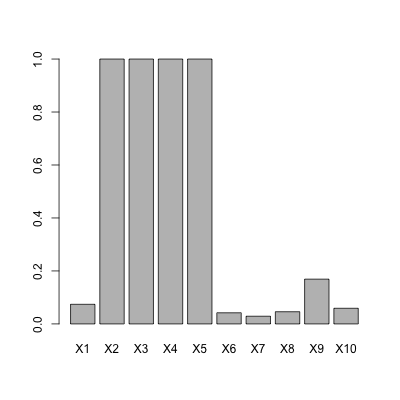Estimating the health effects of environmental mixtures using Bayesian semiparametric regression and sparsity inducing priors
Humans are routinely exposed to mixtures of chemical and other environmental factors, making the quantification of health effects associated with environmental mixtures a critical goal for establishing environmental policy sufficiently protective of human health. The quantification of the effects of exposure to an environmental mixture poses several statistical challenges. It is often the case that exposure to multiple pollutants interact with each other to affect an outcome. Further, the exposure-response relationship between an outcome and some exposures, such as some metals, can exhibit complex, nonlinear forms, since some exposures can be beneficial and detrimental at different ranges of exposure. To estimate the health effects of complex mixtures we propose a flexible Bayesian approach that allows exposures to interact with each other and have nonlinear relationships with the outcome. We induce sparsity using multivariate spike and slab priors to determine which exposures are associated with the outcome, and which exposures interact with each other. The proposed approach is interpretable, as we can use the posterior probabilities of inclusion into the model to identify pollutants that interact with each other. We illustrate our approach's ability to estimate complex functions using simulated data, and apply our method to two studies to determine which environmental pollutants adversely affect health.
PDF Abstract